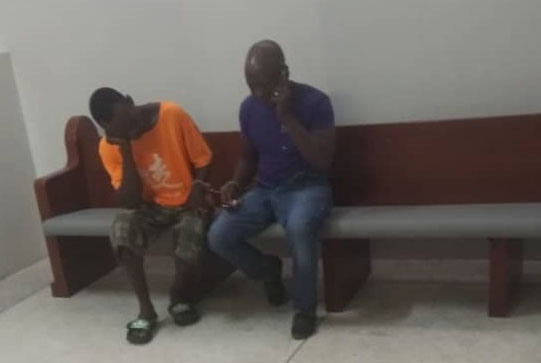Two men who killed an ex-police officer and dumped his body into the Volta Lake at Old Marine, near Akosombo in 2007, were yesterday sentenced to death by an Accra High Court.
Ebenezer Tei, aka Rastaman, a fetish priest and Felix Okpanye, farmer, who
claimed to have powers to double money.
Famous Yevugah, a deceased herbalist, beheaded the ex-police officer, Emmanuel Appiah Kubi, and dumped his body into the lake on March 14, 2007.
Famous Yevugah got drowned in the process of dumping Kubi’s body into the lake.
The three took GH¢4,000
from Kubi under the pretext of doubling it for him.
When the date was due for Kubi to retrieve his money,
they failed to refund it.
Kubi mounted pressure on them to refund the money, but they lured him to Old Marine to speak to a sea goddess “Maame Water” to double the money for him.
They asked him to recite some incantations but Yevugah hit him with a machete and beheaded him.
They put the headless body in a canoe and moved to the middle of the lake to dump the body into the lake.
But the canoe capsized in the process and Yevugah, who could not swim, got drowned, but Tei and Okpanye managed to swim to safety.
Thereafter, the two
convicts took Kubi’s head to one Torgbui Atsu Havor at Adjena Donor, near
Akosombo.
Havor, the prosecution said, directed Tei and
Okpanye to bury Kubi’s head behind his house after which the three went to the Akosombo
Police Station to lodge a complaint that Yevugah had gone missing.
Tei fled to Burkina Faso but was later arrested.
During investigations, the police found traces of blood near the lake and arrested Okpanye and Havor.
The police sought the services of divers from the Volta River Authority (VRA) to retrieve the two bodies from the river – one of them headless.
Okpanye admitted that he committed the crime with Yevugah and Tei and also mentioned Havor as an accomplice.
Tei later admitted the offence after his arrest by the police.
Trial
The prosecution called five witnesses to prove its case against the accused persons before an Accra High Court presided over by Justice Lawrence L. Mensah, an Appeal Court judge sitting as an additional High Court judge.
The convicts, after the prosecution closed its case, also opened their defence but did not call any witnesses.
At the end of the 12-year trial, a seven-member jury returned a guilty verdict and the presiding judge sentenced them to death.
By Gibril Abdul Razak


